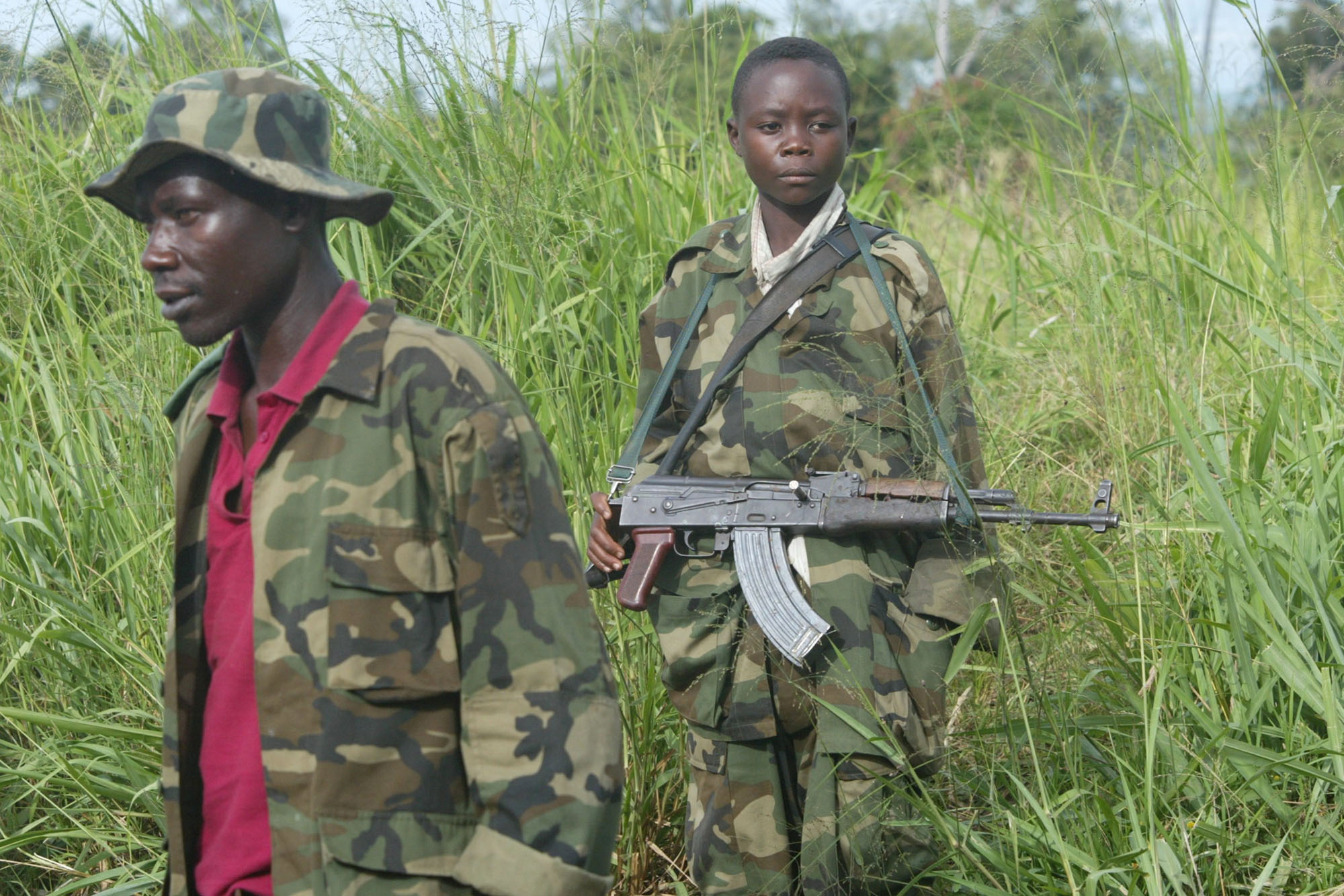
Bosco Ntaganda’s original arrest warrant from the International Criminal Court, or ICC, lists three war crimes charges all related to the use of child soldiers—enlistment, conscription, and use of children under the age of 15 in hostilities. The Office of the Prosecutor has recently requested for the ICC’s Pre-Trial Chamber to add to these charges, yet it is clear that the use of child soldiers is a particular trademark of Ntaganda.
While he remains at large, Ntaganda is still committing the very same crimes for which he is currently under indictment: the forced conscription of boys and young men. As Human Rights Watch Senior Africa Researcher Anneke Van Woudenberg noted this week, “What is so shocking is that he is continuing to commit the exact same crime for which he is already wanted by the International Criminal Court."
Since his April 2012 defection and mutiny Ntaganda’s troops, which number somewhere between 300 and 600 soldiers, have been implicated in the forcible recruitment of at least 149 boys and young men. The bulk of these abductions took place around three villages in the Masisi territory in North Kivu province, Kilolirwe, Kingi, and Kabati. Some of these children are already believed to have died in the fighting. Human Rights Watch believes that the “actual level of recruitment during this period may have been significantly higher.”
Many of these forced recruitments have targeted schools. A 17-year-old boy from Mapendano secondary school in Masisi territory told Human Rights Watch:
There were so many of them. They came at 1:30 p.m. We were almost done with the school day. [The fighters] asked us to exit the room and then they took us behind the school building. They tied my hands with a rope. All of us were tied up. Then they marched us to the hill…. They told us we would fight for Bosco [Ntaganda]…. They informed us that we would liberate our country by giving our support to Bosco Ntaganda. We must support him so that our Congo would not be taken by others.
He was in a group of 32 male students abducted and forced into a military training camp where they were taught rudimentary military skills and given partial uniforms. While still in the custody of the mutineers, the boys were used as porters and brought to the front line. There is evidence that the children were positioned in front of Ntaganda’s troops “so that the children would be the first to be ambushed or shot at.”
To avoid Ntaganda’s intense recruitment many boys and young men have fled into neighboring Rwanda and Uganda. Internal documents from the Nkamira Transit Center near the Rwandan border town of Gisenyi cited “fear of recruitment into militia groups” as a primary reason for the flight of young men and boys from Congo.
This fear of recruitment, alongside the general insecurity and instability, has led to a huge uptick in Congolese seeking refuge across the border. The U.N. High Commission for Refugees, or UNHCR, reported that over 8,200 Congolese civilians have crossed into Rwanda since April 27 and upwards of 30,000 Congolese refugees have fled into Uganda since a fresh round of fighting began on May 10. For many of these refugees, it is the third time they have been forced to leave their homes in Congo since the mid-1990s.
The U.N. High Commissioner for Refugees, Antonio Guterres, said of the situation, "The displacement level we see in eastern Democratic Republic of the Congo is already disastrous. Conflict there, coupled with very limited access for humanitarian workers, means that many thousands of people are without protection and help. And now people in need are appearing in neighboring countries too."
Until Bosco Ntaganda is apprehended the instability in eastern Congo will remain, forcing families to flee their homes to protect their sons from forced recruitment in his militia. Allowing Ntaganda to avoid prosecution for his crimes for years has not brought peace to the region. In fact, this impunity has simply enabled him to continue his abuse of children in yet another conflict.
Photo: A child soldier in eastern Congo (AP)

